Reflector Antennas
Antennas represent one of the company´s most important subsystem domains that HPS fully covers with a portfolio ranging from side-deployable antannas, top deck- and feeder link-antennas over dual gridded, GNSS- and large deployable antennas, up to radar- and even ground-antennas.
In particular for solid refector antennas, the company specializes on Ka- and Q/V-band. Notable features of HPS antenna subsystems are their low weight, high reflectivity, low thermoelastic distortion and high eigenfrenquency.
HPS delivers antenna subsystems complete and fast – advantages which in combination with those proven quality features mentioned above have led to HPS flight heritage on board of the „Heinrich Hertz“-mission of the German space agency DLR as well as for the ESA-mission EUCLID.
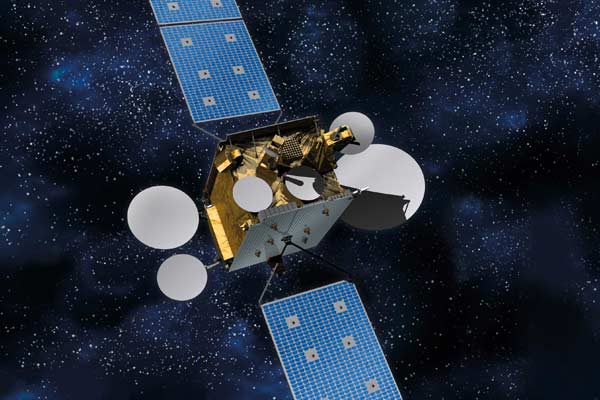
Contact:
For further information please contact our chief engineer.
Or directly: antennas@hps-gmbh.com
References:
→ Success Trajectory
Top Deck Antennas
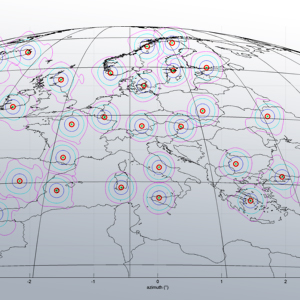
Downlink example:
- Tx: 18.8 – 20.2 GHz
- Rx: 28.5 – 30.0 GHz;
- Tested up to 49.8 GHz
- Up to 19 beams for multibeam user link scenario
- Main reflector diameter: 70 cm
- Subreflector: 25 cm
- Mass: 7 kg (inkl. Feed Cluster)
- 1st Eigenfrequency: >110 Hz
Feeder link example:
- Tx: 37.5 – 40.5 GHz
- Rx: 47.2 – 50.2 GHz
- European coverage
- 8 gateways for nominal ops
- 2 for diversity sites
- Main reflector diameter: 120 cm
- Subreflector: 80 cm
- Mass: 23 kg (incl. feed and thermal H/W)
- 1st Eigenfrequency: >60 Hz
Side Deployable Antennas
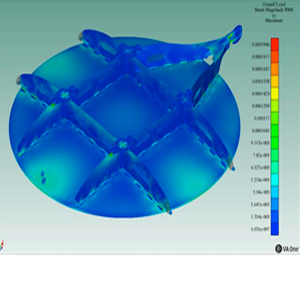
1.0 m Class:
- Tx: 18.8 – 20.2 GHz
- Rx: 28.5 – 30.0 GHz
- 2 service areas
- Single offset configuration
- Pointing error: < 0.006°
- TED < 0.017 mm RMS
- Mass: 3.7 kg (reflector only)
- 1st Eigenfrequency: >140 Hz
1.6m Class (scalable up to 2.5m):
- Tx: 18.8 – 20.2 GHz
- Rx: 28.5 – 30.0 GHz
- 2 service areas
- Single offset configuration
- Pointing error: < 0.02°
- TED < 0.03 mm RMS
- Mass: 9.8 kg (reflector only)
- 1st Eigenfrequency: >130 Hz
Dual Gridded Antennas
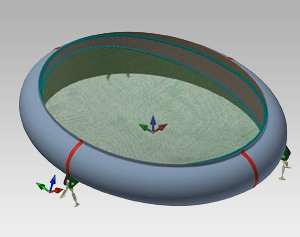
Features:
- Ku-/Ka-Band
- Linear polarisation
- CFRP-rod based patented concept
- Diameter: 1,2 m
- Mass: 4,3 kg
- 1st Eigenfrequency: >100 Hz
- Shaped and unshaped configurations
Large Deployable Antennas
Watch the Video: A European Declaration of Non-Dependence in Space
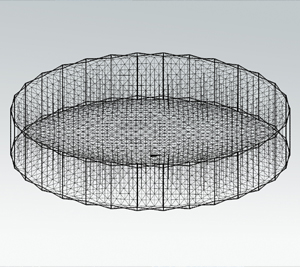
Features:
- C-Band, L-Band, S-Band
- Scalable up to Ka-Band
- LEO application for Earth Observation
- GEO application for Telecommunication
- Diameters between 5 m and 20 m
- Mass of reflector assembly:
25 kg (5 m) and 60 kg (12 m) - Close co-operation with subcontractor
LSS UG, Munich - Reflecting surface: gold plated metal mesh
Ka-SAR Radar Antenna System
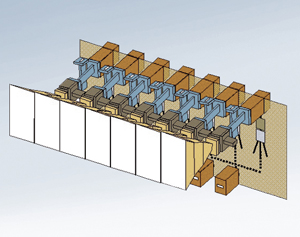
Features:
- LEO-Orbit
- Interferometric SAR system
- 2x Rx-antennas on deployable booms
- 2x Tx-antennas
- 35–75 GHz
- 3 hybrid multi-matrix power amplifier network
- Dual linear polarization
GNSS Antennas
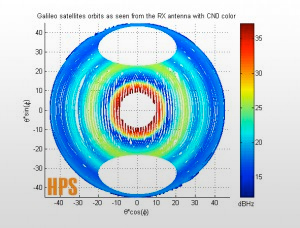
Features:
- Autonomous orbit determination of GEO satellites
- Use of GNSS multi-constellation (GPS/GALILEO)
- Dimensions: max. diameter: 25 cm; height: 50 cm
- Mass (incl. thermal H/W): 1.5 kg
- Electrical Interface: SMA connector
- Mechanical Interface: 4x M5 screws
Ground Portable Antennas
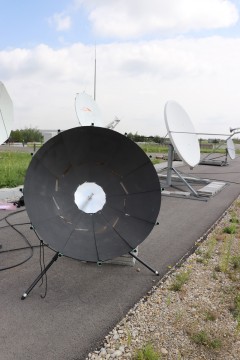
Features:
- Man pack antenna
- Mass: 10 kg (without electronics)
20kg (with electronics & backpack) - Packing Volume: 250 liter
- Activation incl. pointing: 15 min.
- Dismounting & packing: 5 min.
- Direct satellite link
- High data rates
- Frequency: up to Ku-Band.
Applications:
- Civil and Military applications
- Rescue missions
- Communication during Breakdown
- Expeditions
- Journalism
- Rescue Missions
- Research.

